Analysis of Chronic Illness Experiences in Healthcare Reflection
VerifiedAdded on 2022/09/18
|5
|943
|23
Report
AI Summary
This report provides a comprehensive analysis of reflections on chronic illness, drawing from three key articles focusing on the experiences of caregivers, healthcare professionals, and patients. The first article by Clark (2017) examines the needs of dying cancer patients and their families, highlighting the challenges faced by nurses and the importance of patient autonomy in end-of-life care. The second article, by Hudson (2017), explores the experiences of male spouse caregivers of women with breast cancer, focusing on the impact on their self-identity and the emotional toll of caregiving. The third article by Zheng et al. (2014) investigates Chinese oncology nurses' experiences caring for dying patients, emphasizing the nurses' personal and professional growth and the emotional impact of end-of-life care. The report synthesizes these perspectives to provide insights into the multifaceted challenges and emotional complexities of chronic illness and end-of-life care, emphasizing the importance of empathy, support, and understanding for both patients and caregivers.
1 out of 5
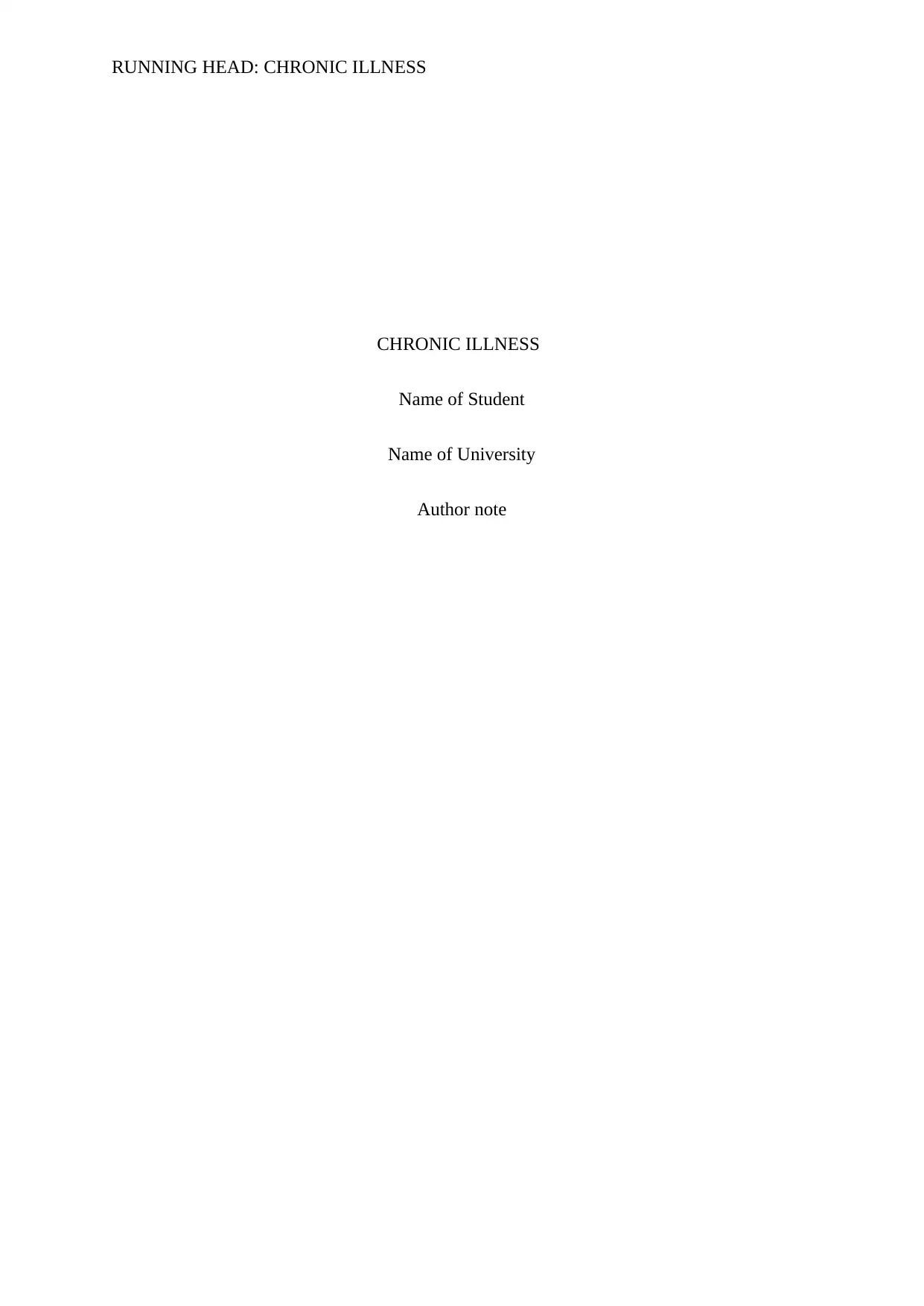
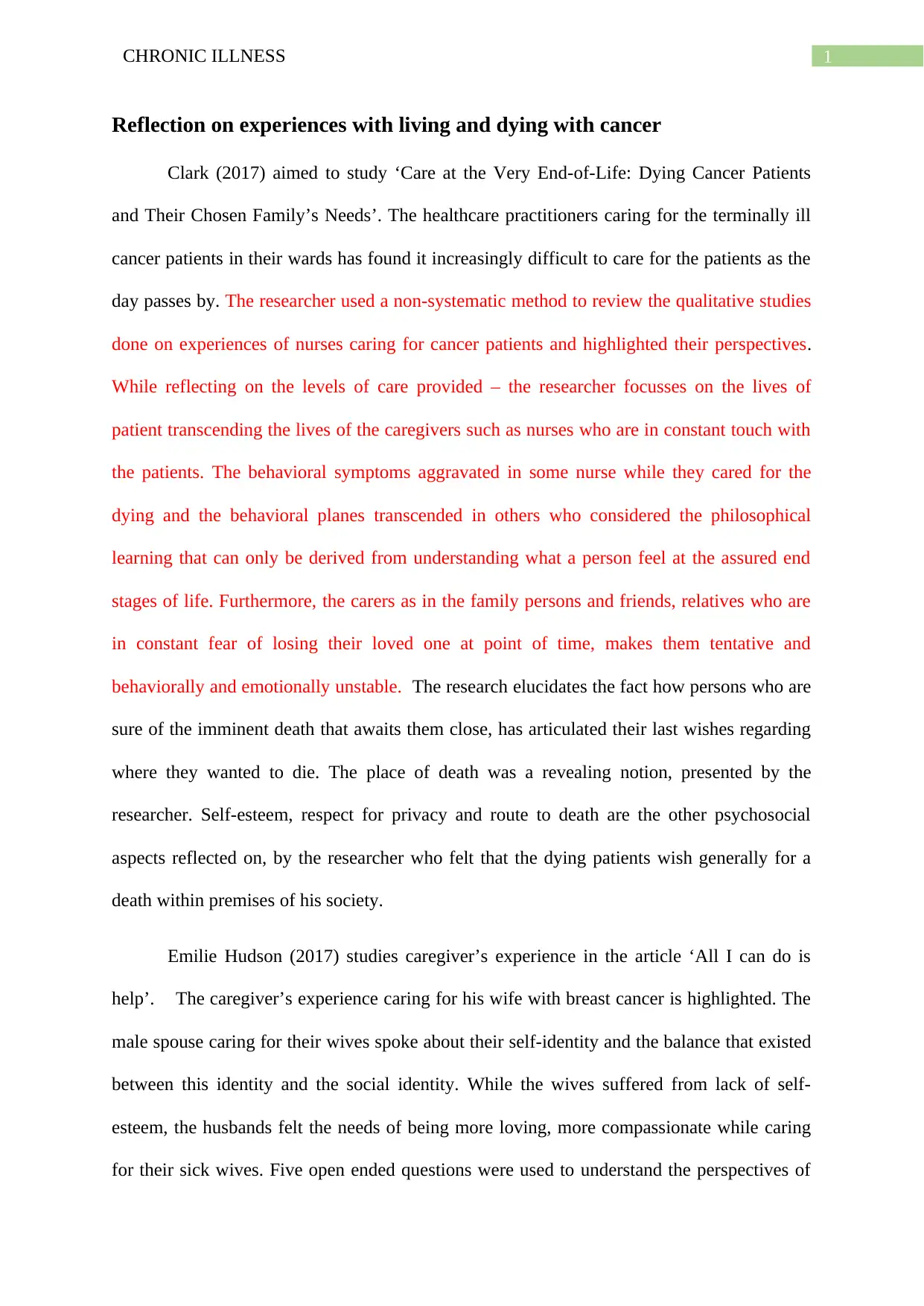
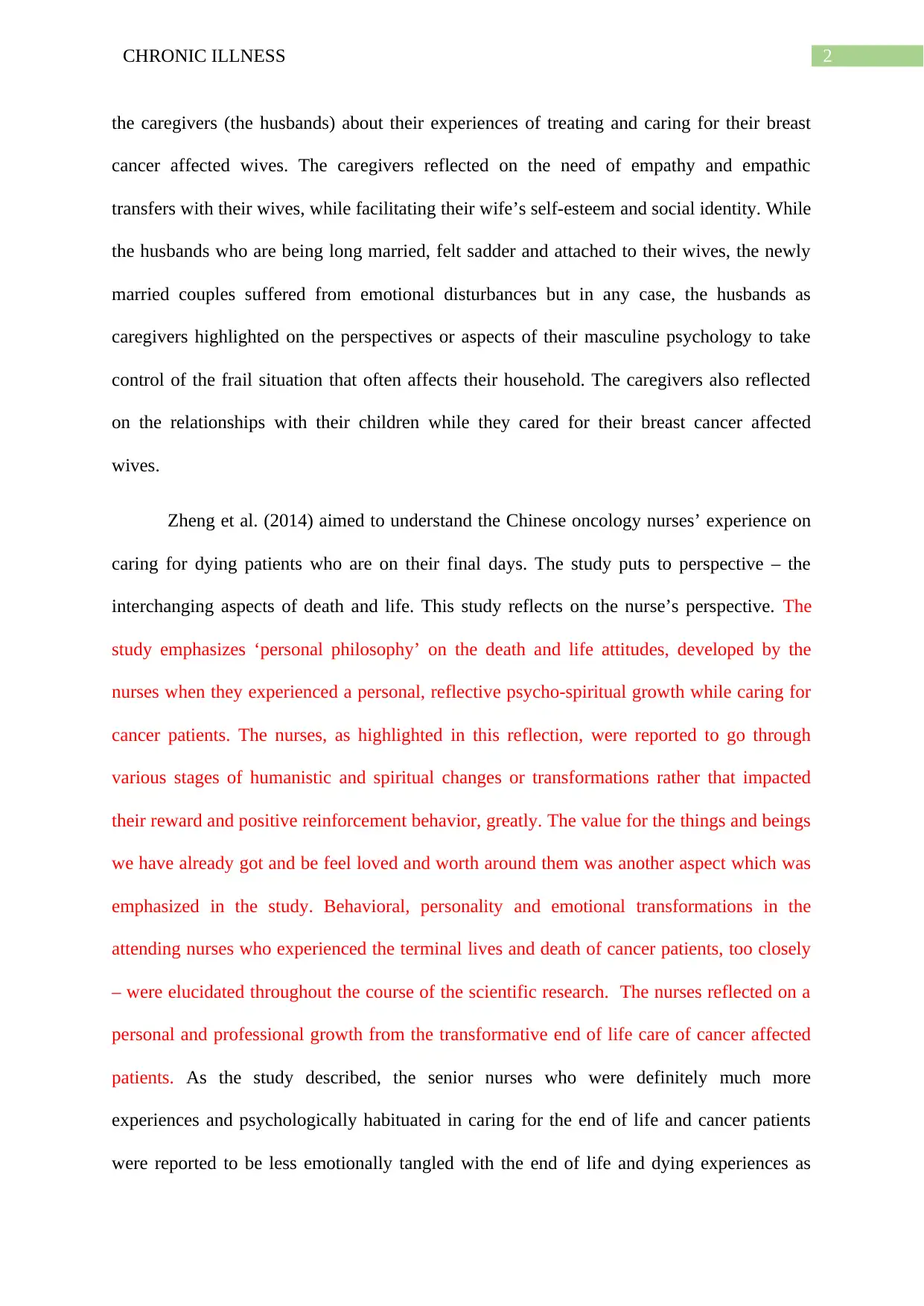

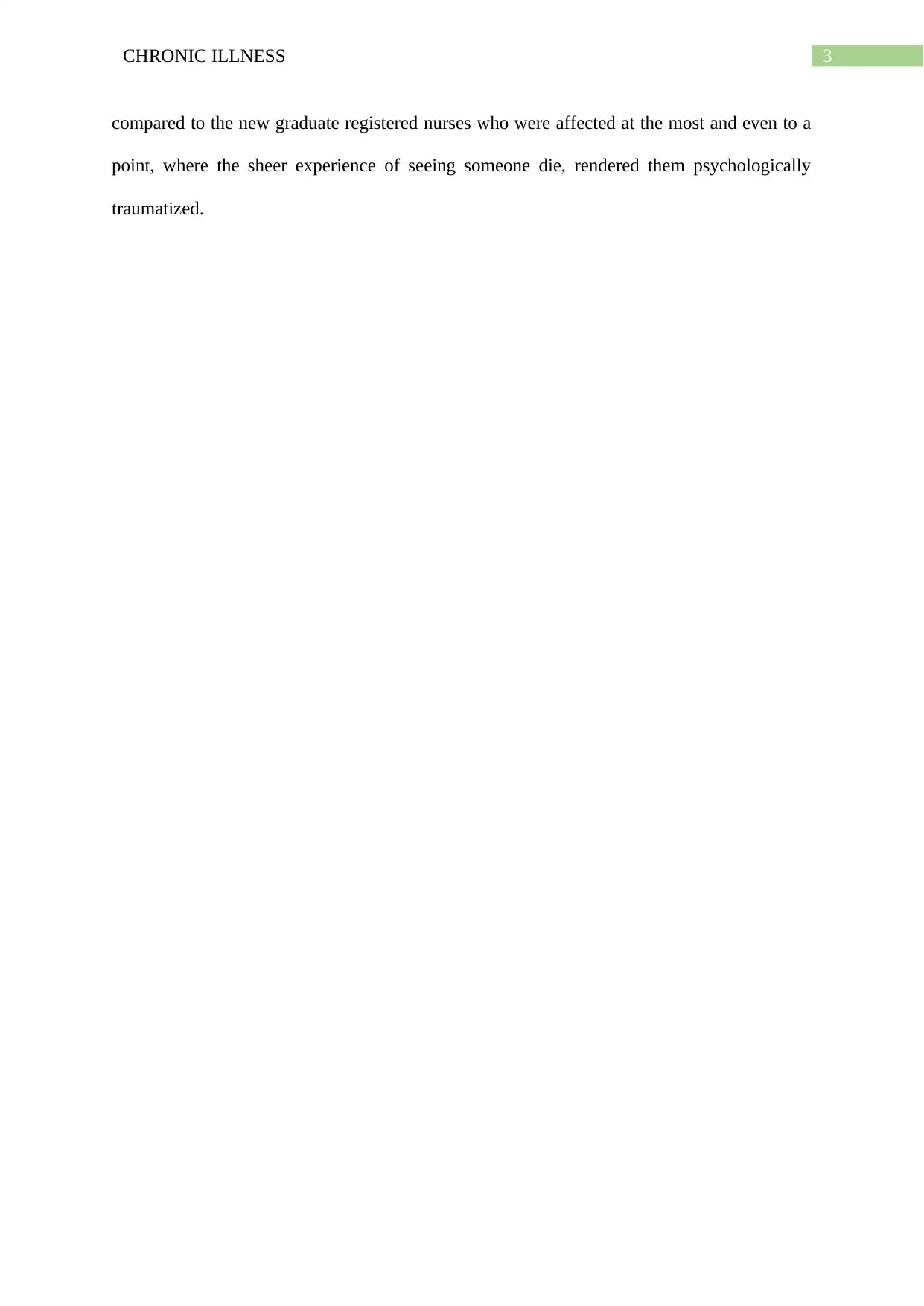
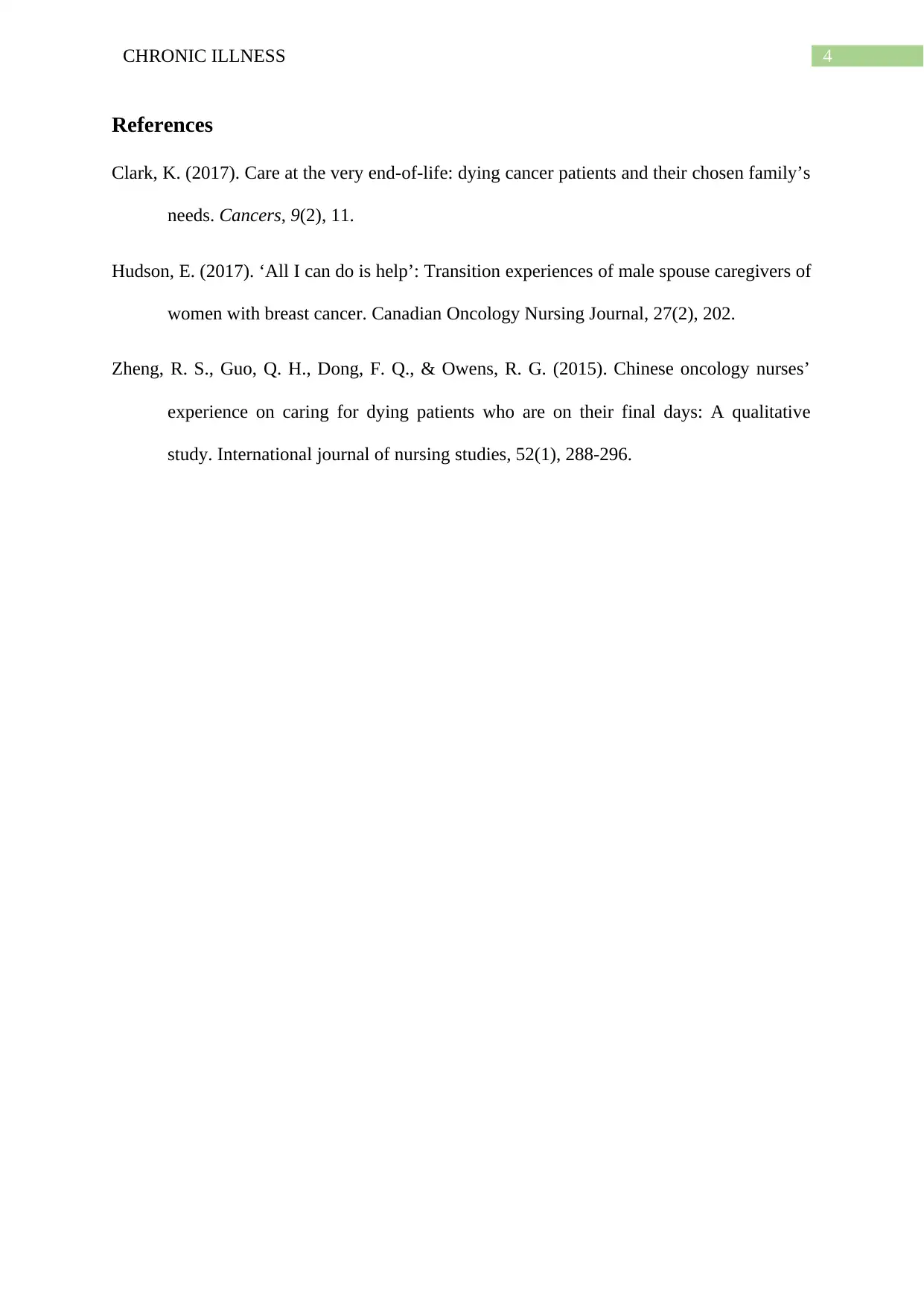






![[object Object]](/_next/static/media/star-bottom.7253800d.svg)